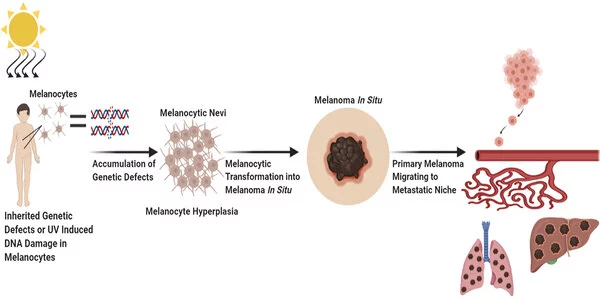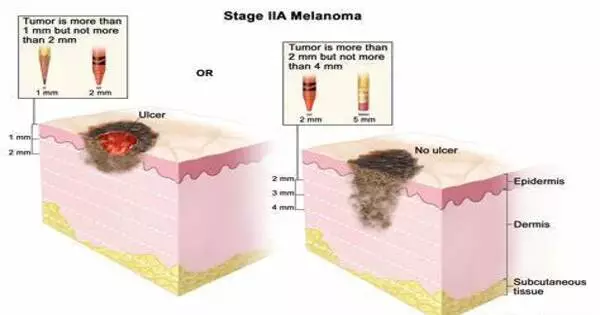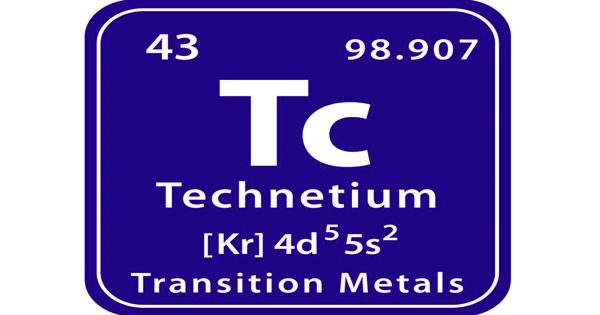Melanoma has been linked to genetic alterations, particularly in genes such as BRAF and NRAS. Additional genetic abnormalities and changes that contribute to melanoma development have been discovered by researchers. The discovery of these genetic alterations has resulted in the creation of targeted medicines.
Researchers discovered that the melanocyte-specific transcription factor, MITF, induces the production of a specific isoform of GREB1 Is4 in malignant melanoma cells. They discovered that GREB1 Is4 enhances cancer cell proliferation by stimulating pyrimidine production. Furthermore, the anti-tumor impact of antisense nucleic acids against GREB1 revealed a possible novel treatment approach for malignant melanoma.
Malignant melanoma is a kind of skin cancer that develops from melanocytes or nevi and accounts for approximately 80% of all skin cancer deaths. While existing molecular targeted medicines and immune checkpoint inhibitors have demonstrated significant response in some individuals, similar treatments have also proven ineffective in others. As a result, the development of novel treatment agents for instances that are resistant to conventional medication regimens has become necessary.
Malignant melanoma is a kind of skin cancer that develops from melanocytes or nevi and accounts for approximately 80% of all skin cancer deaths.
Osaka University researchers discovered that the expression of a specific isoform of GREB1 isoform 4 (Is4) is induced in malignant melanoma cells under the influence of the melanocyte-specific transcription factor, MITF, and GREB1 Is4 promotes cancer cell proliferation and the regulation of pyrimidine metabolism in a study published this month in Oncogene. Furthermore, the anti-tumor effect of antisense nucleic acids against GREB1 showed a potential new modality for malignant melanoma.
To investigate the mechanisms by which GREB1 Is4 is induced in malignant melanoma and involved in its growth, the research group used a mouse model of malignant melanoma and human clinical samples to comprehensively demonstrate that induction of GREB1 Is4 expression by the MITF transcription factor is important in malignant melanoma development and prognosis.

Subsequent research showed the mechanism through which GREB1 activation promotes melanoma cell growth. Cancer cells, in general, are distinguished by their uncontrollable growth, and chemotherapy has historically been used to reduce cell proliferation by reducing nucleic acid production. By using biochemical and metabolomic investigations, the researchers established that CAD, the rate-limiting enzyme for pyrimidine synthesis, acts as a binding protein for GREB1 Is4, and that GREB1 Is4 is required for pyrimidine synthesis in malignant melanoma.
Furthermore, because GREB1 Is4 has been proven to be a therapeutic target in malignant melanoma, and antisense oligonucleic acids against GREB1 are predicted to become novel therapeutic agents in the future, the findings of this work are of social value.
This crucial work demonstrates that mechanisms directly responsible for the execution of cell proliferation, such as nucleic acid synthesis, influence cancer cell development and proliferation and may lead to new melanoma treatment strategies in the future.
















